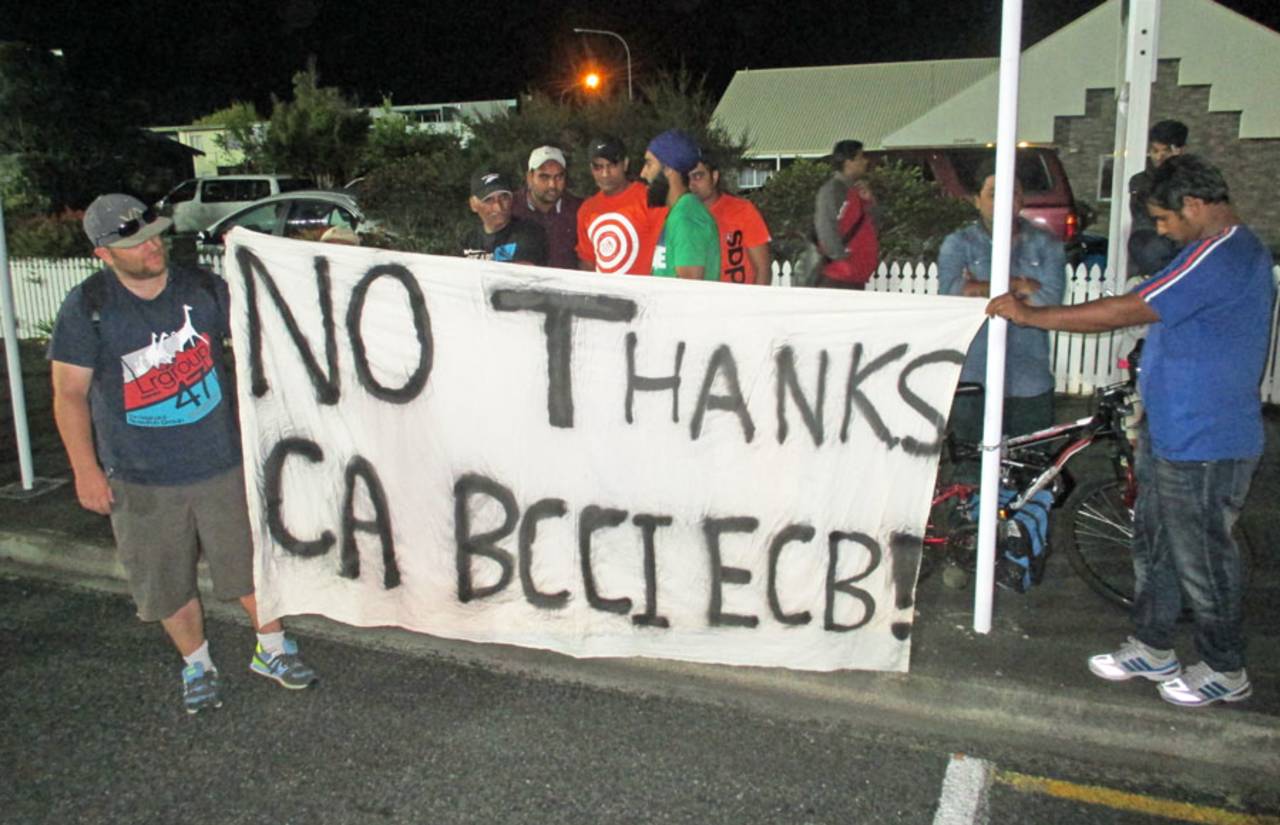Cricket always needs an underclass
History shows us that those who rule the game seem to occupy a centre they cannot bear to share with those at the margins
Samir Chopra
31-Jan-2014

The administrators' uncaring attitudes have been extended toward fans as well • ESPNcricinfo Ltd
Aimé Césaire, the great Francophone poet from Martinique did us all the great service of writing a line that has the utmost relevance for all kinds of political conflict.
From Notebook of a Return To My Native Land: "There is a place for all at the Rendezvous of Victory."
I read this line first in Edward Said's The Politics of Dispossession: The Struggle for Palestinian Self-Determination, and since then, have quoted it extensively in conversation, and used it as the epigraph to the concluding chapter of my book Brave New Pitch: The Evolution of Modern Cricket.
In the translated form that I first encountered, it was: "There are enough spoils at the rendezvous of victory for everyone." The first translation above has advantages over this latter one: by speaking of "a place for all" as opposed to "spoils", we sense the table being set for all, an act of generosity that informs and enriches us even as man is sometimes opposed to man.
Césaire's dismissal of a narrow conception of politics is, I think, of special relevance to the world of cricket today, whose handlers, especially the notorious Big Three and the authors of the dreaded Position Paper (TM), seemingly remain convinced that the financial administration and management of cricket can only be a zero-sum game, that spreading wealth can only impoverish them, and never enrich them in turn.
They seem not to be able to conceive of a world of cricket in which, by virtue of advocating for the game rather than a national board, by momentarily putting their most immediate concerns about short-term profit margins on the proverbial back-burner, they might be able to bring about a more prosperous future in both sporting and economic dimensions for all concerned.
The short-sightedness visibly on display in the position paper is not new. It has been abundantly visible in cricket's administration for a long while now: the chaotic, relentlessly unimaginative programming that burns out players and bores fans; the desperate desire to dance to the tune of the television rights holder; the illiteracy of Giles Clarke's comment that internet piracy was the greatest threat to the game, which reflected incomprehension of both cricket fans' needs and of the possibilities of the new world of online media; the refusal to organise a genuine World Cup; the list goes on.
Cricket has a colonial past, one suffused with parochial, patronising attitudes - did you know Tony Greig was the first incumbent English Test captain to bother touring India? In 1976? - and selective history writing and telling, one in which feudal attitudes towards those who played the game flourished till they were partially displaced by a television magnate.
These uncaring attitudes seem to have been extended toward fans as well, whose voluble concerns about cricket's modern state are dismissed with the same blitheness used to ignore the concerns of the current second-class citizens of the cricketing club.
Cricket, it seems, always needs an underclass. Those who sit astride the game always seem to need to convince themselves that they occupy a centre that cannot be shared with those dimly visible at the margins.
They should read a little more poetry.
Samir Chopra lives in Brooklyn and teaches Philosophy at the City University of New York. He tweets here